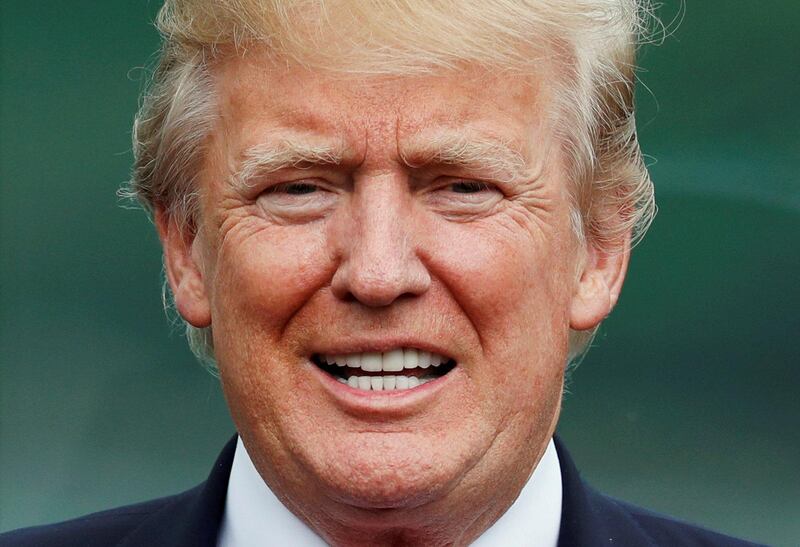President Donald Trump may have a problem with oil prices being “very high,” but a decline would be a mixed bag for the US economy, thanks to the boom in American energy production.
When prices plunged starting in mid-2014 and stayed low for the next two years, US producers felt the pain, much more and longer than was expected. A pullback in demand for oil-related equipment slowed mining and manufacturing output cooled investment and hurt jobs. For consumers, though, it expanded purchasing power, as less-expensive fill-ups at the petrol vpump left more money to spend elsewhere - supporting the biggest part of the economy.
The idea of cheap oil as a clear positive for the US harks back to an earlier era when it would boost consumption, contain the trade deficit and hold down costs for businesses. Now oil prices play a more nuanced role: there’s been a boom in shale oil production, helping reduce petroleum imports and boost exports. And the global energy-price recovery since mid-2017 has helped usher a rebound in US manufacturing and capital spending, underpinning growth.
If oil prices were to drop again, the effect won’t be “cut and dry the way it would’ve been even a few years ago,” said Stephen Stanley, chief economist at Amherst Pierpont Securities and a former Federal Reserve researcher.
US production has “ramped up dramatically,” so “from a growth perspective, there are both winners and losers,” he said. “It’s one of those things where 90 per cent of the economy benefits small and 10 per cent gets hurt big.”
_______________
Read more:
Opec responds to Trump tweet, saying it does not set a 'price object'
Opec and its allies to maintain oil curbs despite prices topping $74, analysts say
_______________
Mr Trump tweeted on Friday that “Oil prices are artificially Very High” because of Opec, and the situation “will not be accepted.” The crude glut that’s weighed on prices for three years has almost been wiped out by Opec production cuts, and the group aims to drive fuel inventories even lower.
The closest US allies within Opec rejected Mr Trump’s accusation, including oil ministers from Saudi Arabia, Russia and the UAE. Before the president’s tweet, energy ministers meeting in Saudi Arabia showed a desire to further tighten crude markets. Saudi Arabia is said to desire crude closer to $80; earlier on Friday, it traded near $74 a barrel in London.
Meanwhile, the US is seeking global oil dominance, expanding its own oil production so it relies less on Opec. That’s increased the presence of American energy companies, and their desire for higher prices to facilitate growth, investment, profits and shareholder returns. Mr Trump is seeking to open ocean areas for offshore exploration and allowing drilling in the Arctic National Wildlife Refuge for the first time in four decades.
In recent years, American reliance on foreign petroleum has dropped. The country’s trade deficit for petroleum products was $7.35bn in February, compared with $41.8bn in July 2008, the biggest in data back to 1994.
“Historically, lower oil prices have been a positive for US growth, but the tremendous rise in domestic shale oil production over the past decade has created a powerful counterweight that has offset some of the benefit of lower prices,” Randal Quarles, appointed by Mr Trump last year to the Federal Reserve Board, said in a February speech. “In the immediate aftermath of the decline in oil prices, investment in the energy sector fell off precipitously, pushing down aggregate investment as well.”
The recent pickup in petrol costs isn’t a major risk to household spending, which is benefiting from a strong job market and low borrowing costs. A sustained advance of more than $1 per gallon, which would mark a return to pre-2014 oil-shock levels, could completely offset the aggregate disposable-income gains from the tax cuts, but the increase in fuel prices in the past year “clearly falls well short of this threshold,” Torsten Slok, chief international economist at Deutsche Bank, wrote in a note last week.






